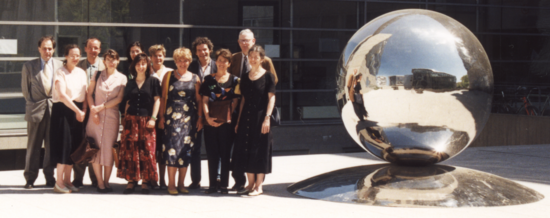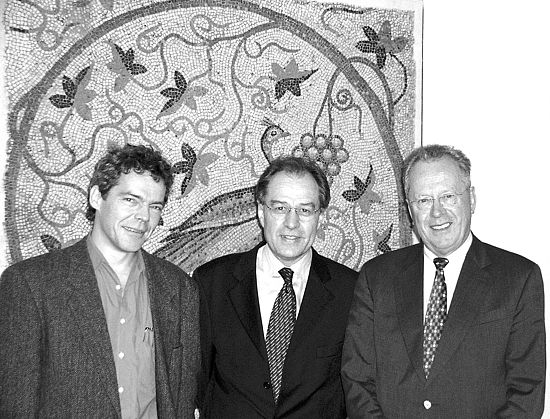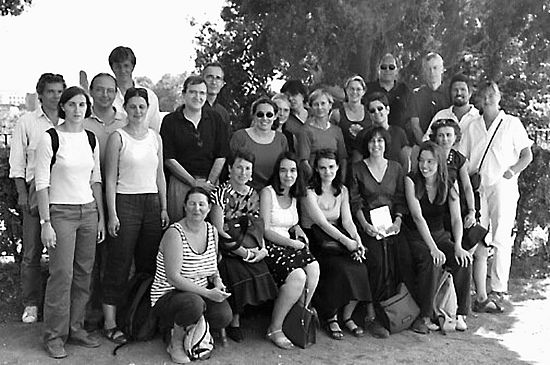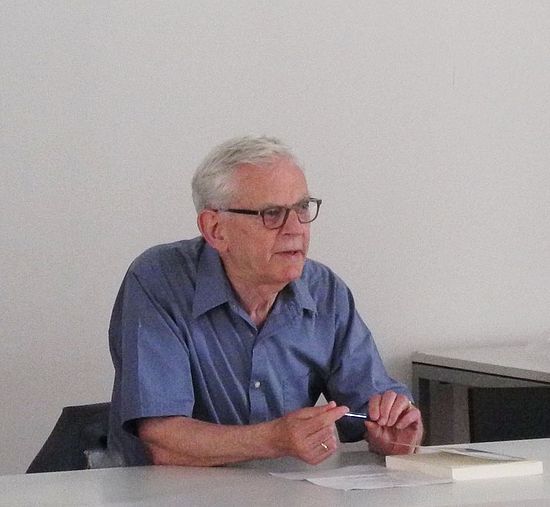
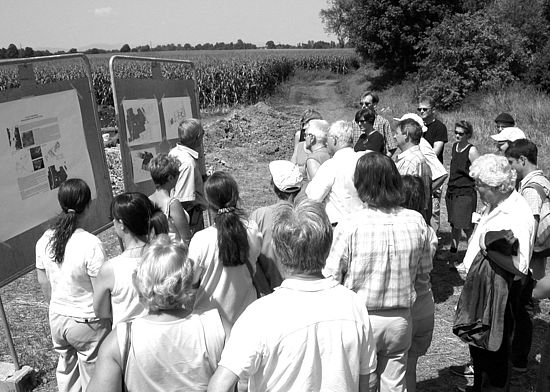
Michel Reddé introduces visitors to the Oedenburg trinational excavation and research project (CBR Newsletter 6/2003).
The history of the Collegium Beatus Rhenanus
The Upper Rhine plain has been a unified cultural area since Neolithic times, and even more so since Celtic and provincial Roman times, and was particularly so during the era of humanism in the 15th and 16th centuries. Beatus Rhenanus, who was born in Schlettstadt / Sélestat in 1485 and worked alternately in Basel and Schlettstadt after studying in Strasbourg and Paris, is symbolic of this. It was therefore logical to choose him as the patron saint for a research association which, within the framework of the EUCOR university network, was to bring together the institutes of ancient studies at the universities of Basel, Freiburg i. Br., Mulhouse and Strasbourg, initially with a focus on Roman history and provincial Roman archaeology. The heroes ktisteis of the Collegium Beatus Rhenanus (CBR), which was founded by statute on November 27, 1997, included Marianne Coudry, Jean-Michel David, Marie-Laure Freyburger, Hans-Joachim Gehrke, Hans Ulrich Nuber and the undersigned, as well as Michel Humm, Thomas Späth and Eckhard Wirbelauer, who were still junior researchers at the time.
The research alliance immediately materialized in tri-national excavations in Oedenburg (Biesheim/Kunheim) in Alsace under the direction of Michel Reddé. They have very successfully shed light on the history of the most important site between Basel and Strasbourg on the Rhine in Roman times, from its beginnings in the 1st century AD to late antiquity. A series of multi-year historical-philological projects on Roman history that continues to this day began with 'L'invention des grands hommes de la Rome antique' (ed. by M. Coudry and Th.Späth, Paris 2001) and 'Visions grecques de Rome' (ed. by M.-L. Freyburger and Doris Meyer, Paris 2007). The results of further cooperation have been published as part of the 'Collection CBR', founded in 2009. The cross-border and cross-linguistic collaboration – to date: German-French, (almost) never English! – has enabled all participants to gain a much better understanding of each other's research traditions.
In the 2006/7 academic year, a Trinational Master's in Classical Studies (TMA) was introduced, which enables students from the participating universities to acquire broad transdisciplinary skills in a course of study in German and French. In connection with this, the CBR was also able to expand into a comprehensive network in the Upper Rhine region through the accession of almost all other ancient studies institutes. Since June 15, 2012, a Journée d'étude is held regularly each summer for all participants with reports on current research, usually on a specific topic.
After a very successful first quarter of a century, we hope and wish that the CBR will continue to flourish in multos annos .
Jürgen von Ungern-Sternberg, January 2024

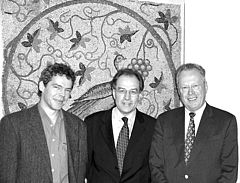
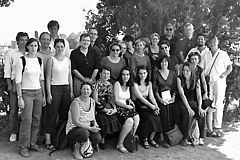
Presidium of the CBR
1997-2000 Jürgen von Ungern-Sternberg, Basel
2000-2002 Marie-Laure Freyburger, Mulhouse
2002-2004 Hans-Joachim Gehrke, Freiburg i. Br.
2004-2006 Anne Jacquemin, Strasbourg
2006-2008 Jürgen von Ungern-Sternberg, Basel
2008-2010 Marianne Coudry, Mulhouse
2010-2012 Ralf von den Hoff, Freiburg i. Br.
2012-2014 Eckhard Wirbelauer, Strasbourg
2014-2016 Henriette Harich-Schwarzbauer, Basel
2016-2018 Maria Teresa Schettino, Mulhouse
2018-2020 Astrid Möller, Freiburg i. Br.
2020-2022 Michel Humm, Strasbourg
2022-2024 Brigitte Röder, Basel
2024-2026 Maria Teresa Schettino, Mulhouse
Quick Links

